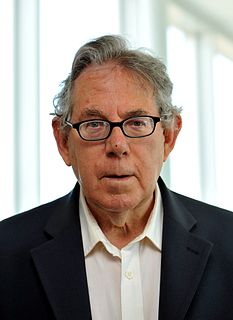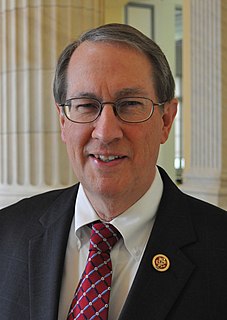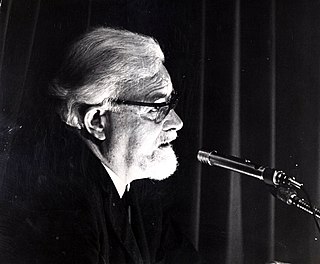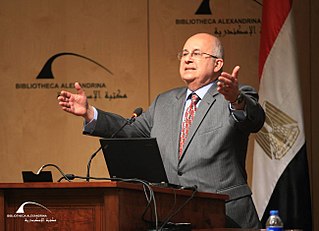Top 303 Agricultural Quotes & Sayings - Page 5
Explore popular Agricultural quotes.
Last updated on April 20, 2025.
There's opposition in Europe to Turkish membership because these are the inevitable fears of energetic, poorer, Muslim outsiders who will come in and work hard and take jobs. There's also a fear that under E.U. rules Turkey might get a disproportionate amount of cohesion funds and agricultural subsidies - although it's quite clear that Europe is changing its rules, and that there will not be very much in the way of net transfers of resources from Europe to Turkey.
In the late 1980s, Soviets were allowed to keep the wealth they created by raising vegetables on their garden plots. Although these plots composed only about 2% of the agricultural lands in the Soviet Union, they produced 25% of the food! When Soviets kept the wealth they created, they produced almost 16 times more than when it was taken from them at gunpoint, if necessary!
Look at our farmers' markets today, bursting with heritage breeds and heirloom varieties, foods that were once abundant when we were an agricultural nation, but that we have lost touch with. Bringing all these back helps us connect to our roots, our communities and helps us feed America the proper way.
I write my books to challenge my own feelings and theories. Perhaps most surprising was what I learned about rice farming. It was really interesting to think of how different Asian and Western cultures are as a result of the kinds of agricultural practices that our ancestors used for thousands of years. The life of a Chinese peasant in the Middle Ages was so dramatically different from the life of a European peasant - night and day different.
It is science that brings us an understanding of the true complexity of natural systems. The insights from the science of ecology are teaching us how to work with the checks and balances of nature, and encouraging a new, rational, limited-input, environmentally sound means of vineyard management that offers a third way between the ideologically driven approach of Biodynamics and conventional chemical-based agricultural systems.
Taxes are a barbaric remnant of ancient times in which early farmers, tied to the land, no longer able to roam freely, unable to fight back with awkward agricultural tools the way they once could with hunting implements, became victims, first, of itinerant plunderers, then of bandits settling down beside them to become the governments we know today.
If agricultural land be left uncultivated, in a few years the jungle returns, and signs are not lacking that a similar danger is always lying in wait for the fields of thought, which, by the labour of three hundred years, have been cleared and brought into cultivation by men of science. The destruction of a very small percentage of the population would suffice to annihilate scientific knowledge, and lead us back to almost universal belief in magic, witchcraft and astrology.
As he rounded the corner, he saw two dozen men, naked to the waist, digging a hole thirty yards square at the side of the path. For a moment he was baffled. It seemed to have no agricultural purpose; there was no more planting or ploughing to be done. Then he realized what it was. They were digging a mass grave. He thought of shouting an order to about turn or at least to avert their eyes, but they were almost on it, and some of them had already seen their burial place. The songs died on their lips and the air was reclaimed by the birds.
Many agricultural counties are far more important in the life of the State than their population bears to the entire population of the State. It is for this reason that I have never been in favor of restricting their representation in our State Senate to a strictly population basis. It is the same reason that the founding fathers of our country gave balanced representation to the States of the Union, equal representation in one House and proportionate representation based upon population in the other.
The broad rich acres of our agricultural plains have been long preserved by nature to become her untrammeled gift to a people civilized and free, upon which should rest, in well-distributed ownership, the numerous homes of enlightened, equal, and fraternal citizens... Nor should our vast tracts of so-called desert lands be yielded up to the monopoly of corporations or grasping individuals, as appears to be much the tendency under the existing statute.
The people who benefit from this state of affairs have been at pains to convince us that the agricultural practices and policies that have almost annihilated the farming population have greatly benefited the population of food consumers. But more and more consumers are now becoming aware that our supposed abundance of cheap and healthful food is to a considerable extent illusory.
We see that there are two different kinds of...societies: (a) parasitic societies and (b) producing societies. The former are those which live from hunting, fishing, or merely gleaning. By their economic activities they do not increase, but rather decrease, the amount of wealth in the world. The second kind of societies, producing societies, live by agricultural and pastoral activities. By these activities they seek to increase the amount of wealth in the world.
My sense is that the most under-appreciated-and perhaps most under-researched-linkages between forests and food security are the roles that forest-based ecosystem services play in underpinning sustainable agricultural production. Forests regulate hydrological services including the quantity, quality, and timing of water available for irrigation. Forest-based bats and bees pollinate crops. Forests mitigate impacts of climate change and extreme weather events at the landscape scale.
The mountain glaciers in every region of the world are melting, many of them at an accelerated rate, threatening drinking supplies - drinking water supplies and agricultural water supplies. We have these record storms, drought, floods, fires, three deaths (ph) in the American West, climate refugees beginning now, expected to rise to the hundreds of millions unless we take action.
We have to make some things for ourselves because the conveyer belt from China is doomed (this process is known as import replacement). We have to do transportation differently, because mass motoring and even commercial aviation will soon be over. We have to inhabit the landscape differently because both suburbia and the metroplex mega-city will be obsolete, so we will have to return to a more traditional disposition of things in smaller urbanisms associated with productive agricultural hinterlands.
It was such a thrill. I found the roughest, toughest girls who love to party. They study and work all day in the Agricultural world and college and then they party. I met one girl at 3 am and she was so drunk and said 'l have to get up and cut a sheep's throat at 9 am.' I met another who was a wool classer. She said 'I can drink to 4 in the morning and class wool from 6 am. So I wrote Girls Out There about them.
In discussing the state of the atmosphere following a nuclear exchange, we point especially to the effects of the many fires that would be ignited by the thousands of nuclear explosions in cities, forests, agricultural fields, and oil and gas fields. As a result of these fires, the loading of the atmosphere with strongly light absorbing particles in the submicron size range (1 micron = 10-6 m) would increase so much that at noon solar radiation at the ground would be reduced by at least a factor of two and possibly a factor of greater than one hundred.
We traditionally in this world didn't have enough calories to feed all of us and had huge famines, not just in Africa, but had them across India, across Southeast Asia, and across China. Because of Borlaug's work at Simit and because of this we have huge excess, until very recently, in agricultural produce and the prices went through the floor.
If we took 75% of the world’s trashed rangeland, we could restore it from agriculture back to functioning prairies — with their animal cohorts — in under fifteen years. We could further sequester all of the carbon that has been released since the beginning of the industrial age. So I find that a hopeful thing because, frankly, we just have to get out of the way. Nature will do the work for us. This planet wants to be grassland and forest. It does not want to be an agricultural mono-crop.
[The right] may never bring prayer back to schools, but it has rescued all manner of rightwing economic nostrums from history's dustbins. Having rolled back the landmark economic reforms of the sixties (the war on poverty) and those of the thirties (labor law, agricultural price supports, banking regulation), its leaders now turn their guns on the accomplishments of the earliest years of progressivism (Woodrow Wilson's estate tax; Theodore Roosevelt's anti-trust measures). With a little more effort, the backlash may well repeal the entire twentieth century.
This is a huge problem. If we don't deal with this within just a few years, you will have island nations flooded; you will have the agricultural balance of most countries completely changed; you will have a dramatic increase in the number of severe, unmanageable weather events... And the good news is that we can now deal with this problem - and strengthen our economic growth, not weaken it.
The World Health Organization recently concluded that glyphosate, the main ingredient in the most-used herbicide on GMOs, is "possibly carcinogenic to humans." What's even scarier is that more than 3,200 elementary schools are within 1,000 feet of genetically modified corn or soybean fields. Drift is a very real thing in agricultural communities, so the proximity of these toxic substances to children is terrifying.
Agriculture probably required a far greater discipline than did any form of food collecting. Seeds had to be planted at certain seasons, some protection had to be given to the growing plants and animals, harvests had to be reaped, stored and divided. Thus, we might argue that it was neither leisure time nor a sedentary existence but the more rigorous demands associated with an agricultural way of life that led to great cultural changes.
A guest worker program should help farmers who are willing to pay a fair wage for law-abiding, dependable workers - not punish them ... And for this reason I support replacing the H-2A program and implementing new policies that will bring our illegal agricultural workers out of the shadows, as a first step in the process of overhauling our nation's immigration system.
Whether we fail or not, we shall not be kept from continuing our mission by those who claim it can't be done. ...Indeed the whole of agricultural and livestock science and even human medicine, if sound, is merely the business of discovering certain natural patterns already in existence, putting together the various pieces and discovering their relationship to the whole universe; indeed such a process is science itself
I would say that, from an agricultural perspective, I have a little bit of concern, because some of the folks I don't know are particularly supportive of the renewable fuel industry and the renewable fuel standard, which is a big part of certainly Midwestern agriculture. I'm hopeful that, when we see his ultimate selection for ag secretary, that we will see someone who is a strong advocate for renewable fuels, and what that means to Midwestern producers. And, for that matter, now, all over the country, we're seeing more and more of the biofuels being produced from a variety of sources.
My object, having a surplus to deal with, is to consider how I can deal with it to the greatest advantage to the consumer - how, without inflicting any injury on Canada, I can secure the most substantial benefit to this country, to the manufacturing, to the commercial, and to the agricultural interests. The real way in which we can benefit the working and manufacturing classes is, unquestionably, by removing the burden that presses on the springs of manufactures and commerce.
When profits are pursued by geographic interchange of goods, so that commerce for profit becomes the central mechanism of the system, we usually call it "commercial capitalism." In such a system goods are conveyed from ares where they are more common (and therefore cheaper) to areas where they are less common (and therefore less cheap). This process leads to regional specialization and to division of labor, both in agricultural production and in handicrafts.
My first goal would be to reduce the perturbation in the carbon cycle. That would mean using carbon neutral sources of energy, and changing our agricultural practices to be less disruptive and polluting. I'm not talking about a policy here so much as changing the way our infrastructure works. That's why I'm so fascinated with changing the way we build cities, because they are the most developed forms of physical infrastructure for human habitation.
Colombia was a big wheat producer in the 1950's. That was eliminated by what sounds like a nice plan, called "Food for Peace. " It's a plan by which US taxpayers subsidized US agribusiness to send food to poor countries. This, of course, destroyed the domestic agricultural markets of these countries, opening these markets to US agribusiness.
The Honorable Elijah Muhammad says that the way to solve this problem is for the white man to give us some territory of our own. And then our people - we have technical know-how, we have agricultural know-how. We have been working for the white man in his business. In every phase of his government we work.
Who knows better than a peasant farmer the agricultural conditions in his country or region? It is not always necessary to send an FAO expert to tell him what crops to grow or what seeds to use. Give him the seeds he asks for, and he will do the rest. Don't tell him how to renovate his irrigation system: give him the necessary equipment and he will do the job far better than us.
When I think about the auto-industry and how it was one of the industries that brought all of these black men from the South to Michigan and other places to make more money than they could ever make in the cotton fields or the agricultural world of the South... what's happening now is all of that is closing down, and we know that it's going to reopen in Southern places, focusing on Mexican and other migrant workers to come and work cheaply and get none of the benefits.
One of the signs of the imminent Apocalypse is the "bitterness of all waters," and anyone traveling through eastern Europe, the former Soviet Union and its satellites-everywhere that the command economy operated, with its callous disregard for anything but narrow-focused abstract principle-could be forgiven for thinking that the Apocalypse was no longer imminent but in full cry. There's hardly a river, stream, or brook that isn't contaminated with the runoff from human misuse, whether industrial effluents, agricultural pesticides and herbicides, or worse.
Fast food may appear to be cheap food and, in the literal sense it often is, but that is because huge social and environmental costs are being excluded from the calculations. Any analysis of the real cost would have to look at such things as the rise in food-borne illnesses, the advent of new pathogens, antibiotic resistance from the overuse of drugs in animal feed, extensive water pollution from intensive agricultural systems and many other factors. These costs are not reflected in the price of fast food.
If Africa is left behind, she is going to continue pumping greenhouse gases into the atmosphere, especially carbon. She's going to continue logging the forests, she's going to continue burning charcoal, she is going to continue practicing agricultural activities that destroy the environment, and sooner or later Africa's problem will become a global problem.
By making marijuana illegal, the agricultural people can't grab hold of it like they did with corn and wheat. So those companies are scrambling around trying to get hold of it, but they can't, because it's a cottage industry, and it will always be a cottage industry. Because the minute the big companies try to make it their own, like they did with soybeans...like Monsanto, they put their own patent on seeds, and you can't do that with marijuana.
The weather behaved itself. In the spring, the little flowers came out obediently in the meads, and the dew sparkled, and the birds sang. In the summer it was beautifully hot for no less than four months, and, if it did rain just enough for agricultural purposes, they managed to arrange it so that it rained while you were in bed. In the autumn the leaves flamed and rattled before the west winds, tempering their sad adieu with glory. And in the winter, which was confined by statute to two months, the snow lay evenly, three feet thick, but never turned into slush.
My position is that the rate should align with the level of economic development. Because it is always about a balance, a balance of interests, and it should reflect this balance. A balance between those who sell something across the border and those who benefit from a low rate, as well as a balance between the interests of those who buy, who need the rate to be higher. A balance between national producers, for example, agricultural producers who are interested in it.
Like its agriculture, Africa's markets are highly under-capitalized and inefficient. We know from our work around the continent that transaction costs of reaching the market, and the risks of transacting in rural, agriculture markets, are extremely high. In fact, only one third of agricultural output produced in Africa even reaches the market.
Policy, for the most part, has been made by white people in America, not by people of color. And they have tended to take care of those things that they think are important. Whether it's their agricultural subsidies, or other kinds of expenditures that are certainly not expenditures for poor people or for people of color. And so we have to band together and keep fighting back.
It is a fact that the entire Kentucky River system, which the central part of the state complacently depends upon for its future water, is deteriorating rapidly because of strip mining, because of bad farming, because of industrial and agricultural pollutants, because of urban sewage. It is deteriorating, that is to say, because almost nobody cares, or cares to know, where water comes from, so long as it keeps coming.
Sara Scherr and Jeff McNeely have given us a thoughtful, sensible book about a topic of great importance to the world. There is no food security, no poverty reduction, no environmental sustainability without transforming our agricultural practices. The book ?presents well documented cases of best practices from all over the world. It should be required reading for all concerned with agriculture, the environment, food security or just the future of our children.
If we are to have a culture as resilient and competent in the face of necessity as it needs to be, then it must somehow involve within itself a ceremonious generosity toward the wilderness of natural force and instinct. The farm must yield a place to the forest, not as a wood lot, or even as a necessary agricultural principle but as a sacred grove - a place where the Creation is let alone, to serve as instruction, example, refuge; a place for people to go, free of work and presumption, to let themselves alone. (pg. 125, The Body and the Earth)
Under the discipline of unity, knowledge and morality come together. No longer can we have that paltry 'objective' knowledge so prized by the academic specialists. To know anything at all becomes a moral predicament. Aware that there is no such thing as a specialized effect, one becomes responsible for judgments as well as facts. Aware that as an agricultural scientist he had 'one great subject,' Sir Albert Howard could no longer ask, What can I do with what I know? without at the same time asking, How can I be responsible for what I know?
[Y]our agricultural revolution is not an event like the Trojan War, isolated in the distant past and without relevance to your lives today. The work begun by those neolithic farmers in the Near East has been carried forward from one generation to the next without a single break, right into the present moment. It's the foundation of your vast civilization today in exactly the same way that it was the foundation of the very first farming village.
Why, I say, that to tax the community for the advantage of a class is not protection; it is plunder, and I entirely disclaim it; but I ask you to protect the rights and interests of labour generally in the first place, by allowing no free imports from countries which meet you with countervailing duties; and, in the second place, with respect to agricultural produce, to compensate the soil for the burdens from which other classes are free by an equivalent duty. This is my view of what is called "protection."
There is not going to be a "hydrogen economy," and no combination of alternative energy systems or fuels will allow us to continue the suburban pattern. It's finished. We will, however, desperately need to grow more of our food closer to home, and so the preservation of agricultural hinterlands is of great importance. But don't expect the fiesta of suburban construction to continue more than a few more years.
A recent review of different agricultural options for the future was conducted by a panel of experts. The scientists posed the question: How are we going to feed the world when there are nine billion people on it, as there will be by 2050? And the answer they came up with was industrial agriculture won't work and genetic engineering won't work and the solution is going to be sustainable, and going to ecological kinds of farming that are based on local environmental conditions that work with local ecosystems available to develop a richer kind of farming technology.
As one of the nation's top agricultural states, Nebraska has a great opportunity to provide input that will help shape the 2007 Farm Bill, .. This legislation will help determine commodity price supports, priorities with regard to conservation programs, as well as rural development, renewable energy and beginning farmer initiatives for several years to come.
Look at our farmers markets today, bursting with heritage breeds and heirloom varieties, foods that were once abundant when we were an agricultural nation, but that we have lost touch with. Bringing all these back helps us connect to our roots, our communities and helps us feed America the proper way.
I do not mean to impugn the social justice and social expediency of the redistribution of incomes aimed at by N.I.R.A. and by the various schemes for agricultural restriction. The latter, in particular, I should strongly support in principle. But too much emphasis on the remedial value of a higher price-level as an object in itself may lead to serious misapprehension as to the part which prices can play in the technique of recovery. The stimulation of output by increasing aggregate purchasing power is the right way to get prices up; and not the other way round.
Socialist revolution aims at liberating the productive forces. The changeover from individual to socialist, collective ownership in agriculture and handicrafts and from capitalist to socialist ownership in private industry and commerce is bound to bring about a tremendous liberation of the productive forces. Thus, the social conditions are being created for a tremendous expansion of industrial and agricultural production.
The fact is, some of the most respected scientific bodies in the world, including Codex Alimentarius (jointly run by the World Health Organization and the Food and Agricultural Organization of the United Nations), the American Medical Association, the British Medical Association, and the American Public Health Association, have stated that more research needs to be done on GMOs through premarket safety assessments before we can truthfully determine their safety.




















































